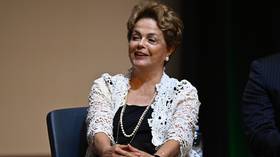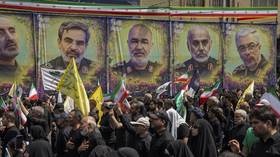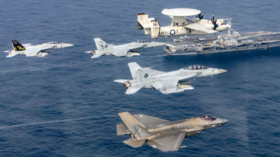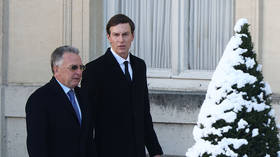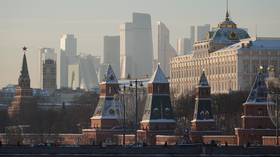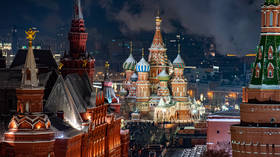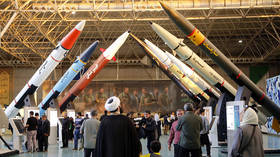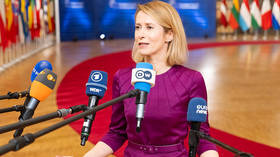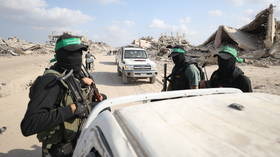De-dollarization is irreversible – Putin
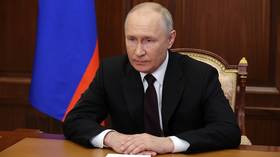
The US dollar is losing its global role in an “objective and irreversible” process, Russian President Vladimir Putin told participants at the BRICS summit in South Africa on Tuesday. Vladimir Putin spoke via video link, after choosing not to attend the event in person.
De-dollarization is “gaining momentum” Putin declared, adding that members of the group of major emerging economies are seeking to reduce their reliance on the greenback in mutual transactions.
The Russian leader claimed the five BRICS members – Russia, China, India, Brazil and South Africa – are becoming the new world economic leaders, adding that their cumulative share of global GDP has reached 26%.
He noted that if measured by purchasing power parity, BRICS has already surpassed the Group of Seven leading industrialised nations – accounting for 31% of the global economy, compared to 30% for the G7.
Over the past 10 years, mutual investment between the BRICS member states has increased by six times. Their total investments in the world economy have doubled, while cumulative exports account for 20% of the global total, Putin said.
Moscow is focusing on re-orienting its transport and logistics routes towards “reliable foreign partners,” including BRICS members, to ensure an uninterrupted supply of energy and food to the international market.
Russia’s primary goals include developing the Northern Sea Route and the ‘North-South’ transport corridor, Putin stated. The first, passing through the Arctic Ocean, along Russia’s northern coastline, will ensure faster goods deliveries between Europe and the Far East. The second will connect Russia’s northern and Baltic ports to the Persian Gulf and the Indian Ocean, facilitating cargo movement between Eurasian and African nations.
“We are consistently increasing fuel, food and fertilizer supplies to the states of the Global South,” and actively contributing to global food and energy security, the Russian leader said. He blamed the current international food crisis on the West’s unilateral sanctions, describing them as “unlawful.”
“Illegitimate sanctions… seriously weigh on the international economic situation,” and the “unlawful freezing of sovereign states’ assets” constitutes a violation of free trade and economic cooperation rules.
The resource deficit and growing inequality worldwide are a “direct result” of such policies, the Russian president argued. He highlighted skyrocketing grain and food prices as the latest manifestation of this process, primarily affecting the most vulnerable nations.
Moscow is represented at the Johannesburg summit, which runs from August 22 to 24, by Russian Foreign Minister Sergey Lavrov. Putin opted not to attend the event after a decision by the International Criminal Court (ICC) to issue a warrant for his arrest in March. The court based the order on Ukraine’s allegation that the Russian evacuation of children from the conflict zone amid hostilities between the two nations amounted to “unlawful population transfers.”
South Africa is a signatory of the Rome Statute of the ICC, and the US and its allies had pressured it to detain Putin should he travel to the country. Moscow has repeatedly denied the ICC’s allegations and stressed that it does not recognize the court’s authority, declaring the warrant legally null and void.
Although South African President Cyril Ramaphosa repeatedly stated that he would not carry out the order, claiming it would amount to a “declaration of war,” Moscow ultimately decided to send Foreign Minister Sergey Lavrov to the BRICS summit to represent Russia.
